Last updated: September 2025
Tenant screening in California blends federal requirements with state and local rules. Landlords must follow the Fair Credit Reporting Act (FCRA), California’s Investigative Consumer Reporting Agencies Act (ICRAA), and city ordinances that add extra obligations. Getting the details right matters: mistakes can lead to rejected applications, penalties, or legal exposure. This guide explains the essentials for landlords, agents, and renters in plain English.
We focus on California tenant screening laws 2025 and show how the same principles appear in the UK and Canada. You’ll see where simple formatting and redaction improve readability, and where edits cross the line into falsification. Throughout, we take a compliance‑first approach so your documents are accurate, privacy‑safe, and reviewer‑ready. This article is general information, not legal advice; always confirm requirements for your city or program.
Related Entities & Terms
- ICRAA (California Investigative Consumer Reporting Agencies Act)
- FCRA (Fair Credit Reporting Act)
- California Civil Code §1786 (investigative reports)
- California Civil Code §1950.6 (screening fee caps)
- CFPB & FTC (U.S.)
- Housing & Civil Rights Division of the DOJ
- FCA & ICO (United Kingdom regulators)
- FCAC & PIPEDA (Canadian regulators)
- W‑2, 1099, Schedule C, tax transcripts (U.S. income documents)
- T4, T1 General, Notice of Assessment (Canada)
- Payslips, P60/P45, SA302 (UK)
- Background check report, investigative consumer report
- Tenant screening fee, adverse action notice
For help preparing compliant documents—whether you need proof of income editing or bank statement formatting—our experts at FinancialDocsProvider.com are ready to assist.
What are the legal basics of ICRAA & FCRA for landlords?
In a nutshell: Federal and state rules work together. The FCRA sets national standards for consent, accuracy, disclosures, and disputes. California’s ICRAA adds stronger notice rights and extends duties to landlords who run their own checks. Local ordinances may cap fees or add refund rules, so confirm city‑level requirements when applying California tenant screening laws 2025 to your process.
Under the FCRA, a landlord needs a permissible purpose and the applicant’s written consent before obtaining a consumer report. If information in any report leads to a denial, higher deposit, or different terms, the landlord must send an adverse action notice. That notice identifies the reporting agency and explains the applicant’s right to a free copy and to dispute inaccuracies.
Applicants have strong access and dispute rights. They may request copies of their reports, challenge errors, and expect reinvestigation within set timelines. Consumer reporting agencies must share reports only with parties that have a valid need, limit how long negative information appears, and correct or delete inaccurate data.
California’s ICRAA supplements those protections. It governs investigative consumer reports that include details about character, reputation, personal characteristics, or lifestyle. The law requires advance notice that includes the reporting agency’s name, address, and phone number, plus a checkbox that lets the applicant request a copy. Applicants may also ask who has received their report in recent years and may dispute incomplete or inaccurate information.
The ICRAA carries meaningful remedies. Consumers can seek actual damages, attorneys’ fees, and statutory damages for certain violations. Separate city rules can layer on compliance duties. For example, Berkeley caps screening fees for 2025 and requires itemized receipts, timely delivery of the credit report, and refunds of unused amounts. Statewide, California Civil Code §1950.6 ties the maximum screening fee to inflation, and many cities publish the dollar cap for each year.
If you operate outside the United States, similar concepts apply. In the UK, the Financial Conduct Authority and the Information Commissioner’s Office oversee consumer reporting and data protection. In Canada, the federal PIPEDA and provincial privacy laws set consent and disclosure standards, and the Financial Consumer Agency of Canada provides guidance. Wherever you work, confirm the jurisdiction’s notice requirements and any fee caps before you collect payments or pull reports.

Key duties at a glance
- Obtain written consent before requesting any consumer or investigative report.
- Use the information only for the stated screening purpose.
- Provide adverse action notices when report information affects rental terms.
- Honor access and dispute rights; cooperate with reinvestigations.
- Follow California‑specific notices under the ICRAA, including the copy request box.
- Charge only lawful screening fees and issue itemized receipts and refunds as required.
Which edits to tenant screening documents are allowed?
In a nutshell: Lawful edits improve readability and privacy without changing facts. Regulators recognize that applicants may need to redact sensitive data or convert files for electronic submission. Edits that preserve accuracy—cropping, masking, re‑ordering, or applying OCR—are fine. Edits that alter numbers, dates, or parties are not.
Reviewers reject confusing or incomplete files. Blurry scans, sideways pages, or missing statements slow decisions and invite extra questions. Acceptable edits that keep the underlying information intact include:
- Redaction of sensitive data: Mask Social Security or National Insurance numbers, account numbers, or signatures. Use true digital redaction that removes characters, not a colored overlay that can be undone.
- Formatting for legibility: Combine multi‑page pay stubs into one PDF, rotate or deskew pages, and split long statements by month. Add bookmarks or a simple index to guide reviewers through large files.
- File conversions: Convert images to searchable PDFs and export spreadsheets to PDF for a consistent look. OCR improves searchability without touching amounts or transaction histories.
- Annotation: Use a brief cover sheet or callouts to explain unusual items, such as irregular freelance deposits or tax adjustments. Keep annotations separate from the source records.
- Consolidation: If six months of statements are required, organize them chronologically and add a one‑page summary table that lists starting balance, ending balance, and total deposits for each month.
None of these edits changes numbers, dates, payees, or parties. If you discover a real error—like a misposted deposit—request a corrected document from the issuer. Under consumer reporting rules, you can dispute incorrect information, and the reporting agency must investigate and update as needed.
Practical examples
- A student submits three partial screenshots of a pay stub. We merge them into a single, properly scaled PDF and redact the SSN, leaving gross pay, net pay, and dates visible.
- A rideshare driver provides bank statements with mixed business and personal activity. We add bookmarks, note which deposits match specific invoices, and include a summary page that points reviewers to the relevant lines.
- An international applicant sends a UK payslip. We add a cover note showing the conversion rate used for US‑dollar figures and keep the original values unchanged.
When in doubt, hire a compliance‑focused editor. Our team specializes in proof of income editing, clean exports, and privacy‑safe redactions. We make documents easier to review without altering facts. For cost details, see our pricing page.
What changes are illegal under tenant screening laws?
In a nutshell: Any modification that misrepresents a material fact is prohibited. Inflating income, hiding negative entries, or moving dates can amount to fraud. The FCRA and ICRAA allow civil remedies, and state or federal prosecutors can pursue forgery or fraud charges. Landlords who knowingly accept falsified documents risk liability too.
Illegal edits include, but are not limited to:
- Changing numbers: Altering pay rates, hours, deposit amounts, balances, or totals on pay stubs and bank statements.
- Modifying dates: Shifting pay periods to appear current or masking late payments.
- Adding or deleting pages: Inserting extra pay periods or removing pages that show overdrafts or negative balances.
- Falsifying employer or landlord information: Inventing a business, forging signatures, or changing the employer’s address.
- Fabricating documents from scratch: Generating fake pay stubs, employment letters, or tax forms. Using or creating false records can lead to fines and jail.
- Manipulating credit reports: Removing negative lines or adding bogus tradelines. Only the credit bureau can correct errors after a proper investigation.
The consequences are serious. False documents can trigger denial, eviction, civil damages, and criminal prosecution. Enforcement agencies emphasize accuracy and timely reinvestigation of disputes. Consumers harmed by inaccurate reporting may sue, and landlords who rely on fabricated paperwork could face claims that they aided the fraud. Our legal redaction guide shows how to protect privacy without crossing the line.
Allowed: Redaction (masking sensitive numbers), formatting for readability, converting to searchable PDFs, adding explanatory cover pages.
Illegal: Changing amounts or dates, adding/removing pages, forging employer details, creating fake pay stubs or credit reports.
When in doubt, keep the facts as they are and consult a professional.
Remember, editing is about clarity and privacy—not deception. If you’re unsure whether an edit is lawful, contact our compliance team for guidance.
When do you need professional document formatting?
In a nutshell: Professional formatting helps when the packet is large, the income story is complex, or the program is strict. Clean presentation speeds reviews and lowers the risk of misunderstanding. It also helps you meet city-level rules tied to California tenant screening laws 2025.
Common situations where expert help pays off include:
First‑time renters
Students and new graduates often have thin credit files. They may submit pay stubs, bank statements, and a guarantor letter. A professional can package these items, redact sensitive data, and add a brief cover sheet that explains limited history and the guarantor’s role. Clear labeling helps the reviewer move quickly.
Example: A student with two part‑time jobs earns variable hours. We place the most recent three pay stubs first, add a table showing average weekly hours, and include the guarantor’s income proof behind a simple divider page.
Self‑employed & gig workers
Freelancers present a mix of 1099s, bank statements, and profit‑and‑loss reports. Organization matters as much as totals. Summarize monthly revenue and expenses, tie deposits to invoice numbers, and include your Schedule C summary. That context lets reviewers follow the money without guessing.
Example: A designer paid by several platforms provides statements with many small deposits. We add a one‑page index that maps each deposit to an invoice and month, then place the tax return and P&L behind it.
Auto loans & SBA financing
Lenders expect consistency across documents. Auto lenders may ask for recent pay stubs and bank statements. SBA lenders often require two years of tax returns and business financials. A neat, reconciled package highlights steady income and lowers back‑and‑forth questions. Missing pages or mismatched totals slow underwriting.
Tip: If cash flow varies by season, include a short note that explains the pattern and points to pages that show it.
International applicants
Relocating renters often bring documents in different formats and currencies. UK payslips may need a clear conversion to US dollars, and Canadian Notices of Assessment benefit from a brief explanation. A professional editor can translate formats, annotate exchange rates, and maintain compliance with UK and Canadian privacy rules while keeping the original values intact.
Bottom line: Presenting accurate, legible documents signals reliability. If you are unsure how to package your records, reach out via our contact form for a consultation.
How does FinancialDocsProvider.com work?
In a nutshell: We format, redact, and organize financial documents for landlords, lenders, and tenants. The workflow is transparent and compliance‑first. We never change balances, dates, or material facts—only how the records are presented.
Here’s a step‑by‑step overview of our workflow:
- Intake & requirements: Tell us your goal—rental application, auto loan, SBA financing, or something else—and upload your raw documents. We determine what is required for your jurisdiction and outline the plan. If items are missing, we flag them early so you can request originals.
- Reconciliation & verification: We cross‑check amounts across pay stubs, bank statements, and tax forms. Dates and payees must align. If we spot discrepancies, we notify you so you can obtain corrected records from your employer, bank, or tax authority.
- Formatting & redaction: We crop and reorder pages, apply digital redactions, run OCR, and merge everything into a single, clean PDF. For self‑employed clients, we add summary tables and annotate unusual deposits. When multi‑currency issues arise, we note the exchange rate used and keep original figures visible.
- Quality control & delivery: A second editor reviews the packet for clarity and compliance with the FCRA and ICRAA. Once approved, we deliver your documents via a secure link. If timing is tight, ask about rush options.
We maintain strict confidentiality at every step. Files are encrypted, access is limited, and we share documents only with you and your designated recipients. For pricing and bundles, visit our pricing page. To learn more about our approach, see about our process.
Choosing a professional editor gives you peace of mind. Your documents arrive organized, privacy‑compliant, and ready for review. If you have unusual circumstances, contact our team and we will walk you through options.
Compliance checklist & packaging tips
In a nutshell: Use this checklist to keep your screening process or application compliant and organized. Good paperwork shortens review time and reduces misunderstandings.
For landlords & property managers
- Get written permission before ordering any consumer or investigative report.
- Collect only what you need for screening, and secure personal information.
- Charge screening fees within the legal cap; for California in 2025 the maximum is $66.92, and you must provide an itemized receipt, a copy of the credit report within seven days, and refund unused amounts.
- Provide an adverse action notice if you deny or condition housing based on report information. Include the reporting agency’s name, address, and phone number.
- Keep screening records, consent forms, and adverse action notices as your policy or local law requires.
- Respond quickly to disputes. Background check companies must reinvestigate within statutory timelines.
- Apply criteria consistently. Use written screening standards and train staff on how to apply them.
- Confirm any city rules that supplement state law, such as fee caps, refund timing, or copy‑delivery requirements.
- Avoid blanket bans that could create fair‑housing concerns. Evaluate relevant, recent information and explain decisions clearly.
For applicants & tenants
- Gather the right documents: recent pay stubs, tax returns, bank statements, employment letters, and government ID. Self‑employed applicants should add 1099s, invoices, and a current P&L.
- Scan documents for clarity. Avoid photos with shadows or cropped totals.
- Redact sensitive data (account numbers, SSN/SIN, signatures) while keeping names, dates, and amounts visible.
- Ensure names, addresses, and employer details match across all records.
- Ask which reports the landlord uses. Request a copy and dispute any inaccuracies under your FCRA rights.
- Keep your own copies of everything you submit in case questions arise later.
- Use a brief cover sheet to explain any irregular deposits or seasonal income patterns.
- If you paid a screening fee, save the receipt. In some cities, unused amounts must be refunded.
These steps promote fairness and transparency for both sides. A well‑organized file signals professionalism and reduces delays.
Reviewer red flags: what triggers rejections?
In a nutshell: Underwriters and property managers look for consistency. Certain patterns prompt questions or immediate rejection. Avoid these pitfalls by submitting clean, authentic records that reflect the truth of your situation.
- Inconsistent totals: Bank deposits that do not match pay‑stub earnings or tax returns.
- Rounded numbers: Exact round amounts every period can appear artificial; small variations are normal.
- Misspellings & font changes: Unexpected fonts, spacing, or alignment suggest alteration.
- Missing pages: Many institutions use standard page counts; gaps imply that negative data may be hidden.
- Editable metadata: PDF properties that show recent edits or an unfamiliar creator name raise concerns.
- Unverifiable employers: Employers with no web presence, mismatched addresses, or disconnected phone numbers.
- Excessive redaction: Blacking out entire transaction lists goes beyond privacy and looks evasive.
- Out‑of‑sequence files: Pages presented out of order, duplicate months, or mismatched statement periods.
- Nonstandard templates: Pay stubs or statements that do not resemble known formats for the institution.
Our guide to spotting fake pay stubs and bank statements explains these warning signs and shows how to avoid them. With professional editing, you can minimize red flags while staying within the law.
Official & additional resources
Staying current requires consulting official sources. The links below provide clear explanations of rights and obligations for both landlords and applicants:
- CFPB – Summary of Your Rights Under the Fair Credit Reporting Act: The Consumer Financial Protection Bureau explains your rights to know what’s in your file, dispute errors, and limit access.
- Privacy Rights Clearinghouse – ICRAA Basics: A concise overview of the California Investigative Consumer Reporting Agencies Act, including individuals’ rights and enforcement provisions.
- Berkeley Rent Board – Tenant Screening & Application Fees: Details on the 2025 screening fee cap, refund rules, and disclosure requirements.
- DOJ/FTC/CFPB/HUD Joint Statement on Tenant Screening: Highlights the duty to provide free copies of screening reports and investigate disputes.
- How to Redact Sensitive Data in Financial Documents (FinancialDocsProvider.com): Our in‑depth guide to lawful redaction and formatting, with checklists and examples.
- Financial document editing services: Learn about our offerings, from income‑proof editing to bank‑statement formatting.
- Contact our team: Reach out with questions or to request service.
Bookmark these resources for ongoing reference. Regulations evolve, and staying informed helps protect your rights and investments.
FAQs
What is the FCRA and why does it matter for tenant screening?
The Fair Credit Reporting Act is a U.S. federal law that governs how consumer reports, including credit and tenant screening reports, may be used. Landlords must have a permissible purpose, obtain written consent, and provide an adverse action notice if report information affects rental terms. Applicants may request a free copy of the report and dispute any errors.
How does the ICRAA differ from the FCRA?
The ICRAA is a California law that regulates investigative consumer reports—background checks that include information about an applicant’s character or lifestyle. Unlike the FCRA, it covers both third‑party screening companies and landlords who conduct their own checks. It requires advance notice, disclosure of the reporting agency’s details, a box to request a copy, and clear dispute rights. Violations can lead to actual and statutory damages.
What is the maximum screening fee landlords can charge in California in 2025?
California Civil Code §1950.6 ties the screening fee cap to inflation. The Berkeley Rent Board reports that the maximum tenant screening fee for 2025 is $66.92. Landlords must provide an itemized receipt, deliver a copy of the credit report within seven days, and refund any unused portion as local rules require.
Can landlords in the UK or Canada run credit checks without consent?
No. In the UK, the Data Protection Act and Consumer Credit Act require consent and appropriate notices. In Canada, PIPEDA and provincial laws mandate that individuals understand how their information will be used and agree to that use. These systems differ from the FCRA and ICRAA but rely on the same principles of transparency and fairness.
How long do tenant screening reports stay on file?
Under the FCRA, consumer reporting agencies generally cannot report negative information older than seven years, or ten years for bankruptcies. Positive data may remain longer. Some states and cities add extra limits, so both landlords and applicants should confirm local rules and request removal of outdated or inaccurate items when appropriate.
Need accurate, reliable financial documents fast? Contact FinancialDocsProvider.com now.
About the author: This article was written by the FinancialDocsProvider.com editorial team. Our editors specialize in formatting and organizing financial documents for renters, small‑business owners, and borrowers. We stay current on laws like the FCRA, ICRAA, and international privacy regulations. Learn more about our process.

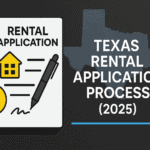
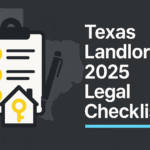
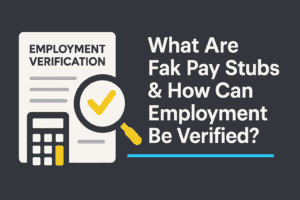
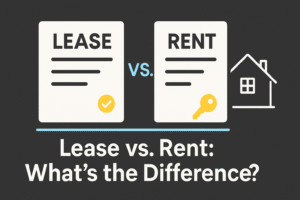
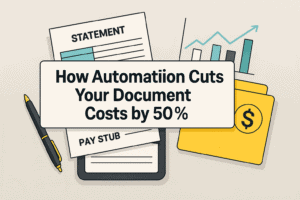

Add comment